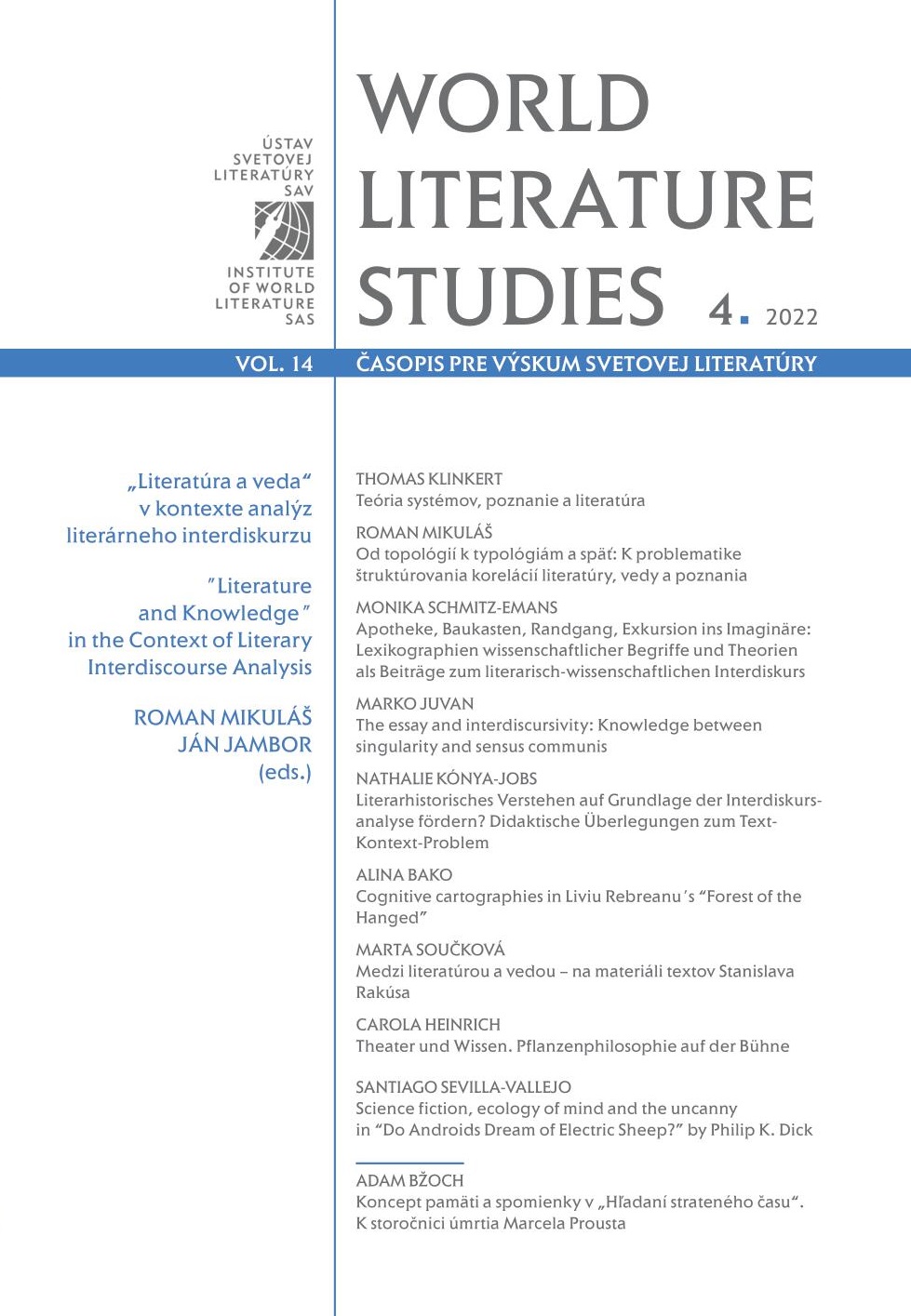Cognitive cartographies in Liviu Rebreanu’s “Forest of the Hanged”
Cognitive cartographies in Liviu Rebreanu’s “Forest of the Hanged”
Author(s): Alina BakoSubject(s): Romanian Literature, Theory of Literature
Published by: Ústav svetovej literatúry, Slovenská akadémia vied
Keywords: Cartographies; Romanian literature; National identity; Knowledge; World War I; Liviu Rebreanu; Transylvania;
Summary/Abstract: The study proves the fact that between literature and knowledge there is a double exchange of influence, the former offering a manner of acting when confronted with extreme situations, and the latter offering valuable documentary data essential for the anchoring of the reader in the narrative action. The formation of cognitive cartographies is studied in the Romanian novel Forest of the Hanged (1922) by Liviu Rebreanu, which brings up various key elements for our study: World War I in the Austro-Hungarian Empire, the inter-imperial issue which influenced the geopolitical and cultural situation, but also the analysis of cognitive cartographies generated by “phantom borders”.
Journal: World Literature Studies
- Issue Year: 14/2022
- Issue No: 4
- Page Range: 78-90
- Page Count: 13
- Language: English

